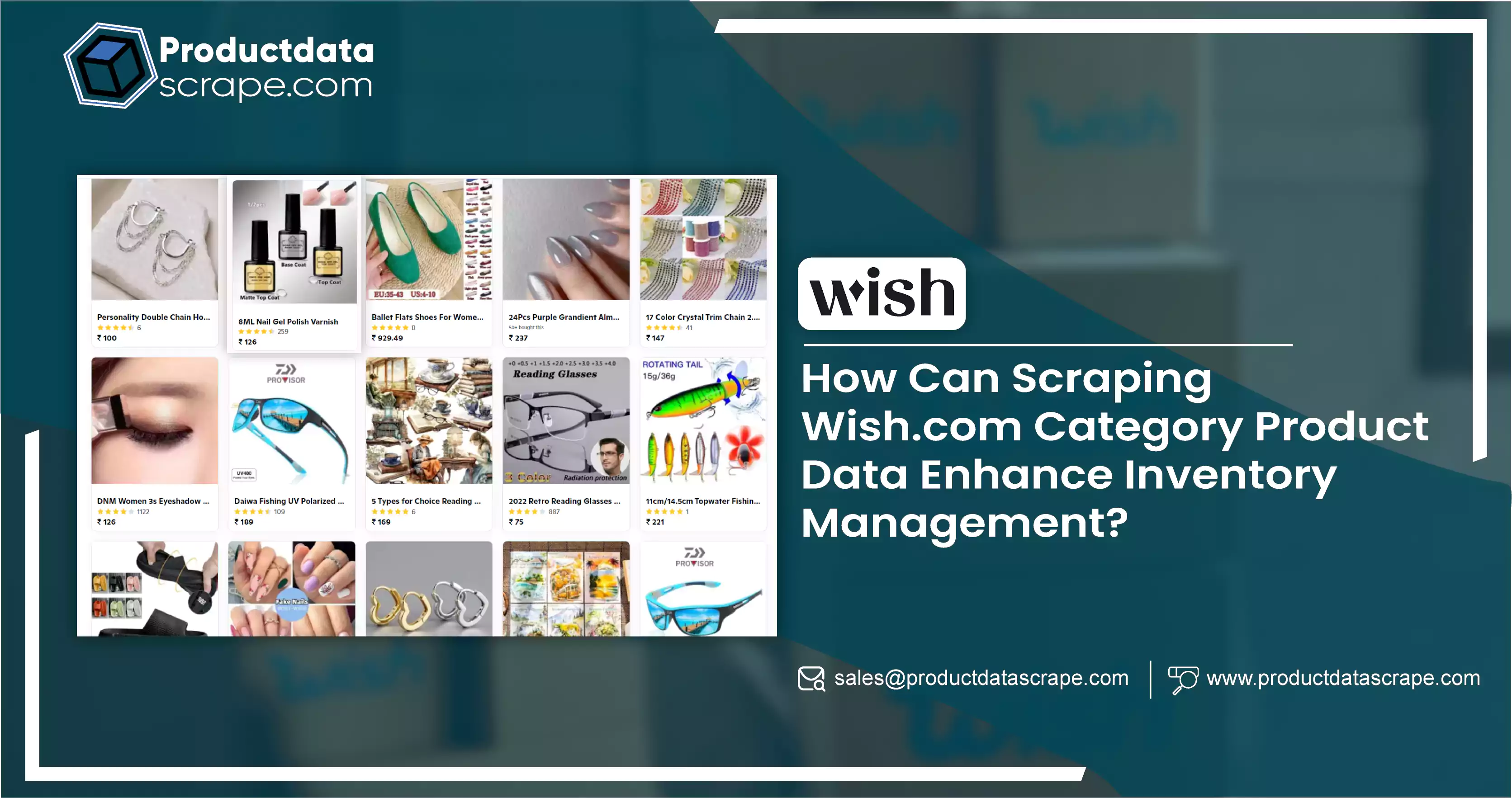
E-commerce data scraping is increasingly gaining prominence as businesses seek to leverage vast amounts of online data for competitive advantage. By extracting detailed product information, pricing trends, and customer reviews, companies can gain valuable insights to refine strategies and enhance decision-making. One notable example is scraping categories product data from platforms like Wish.com. Wish.com, known for its diverse range of affordable products, provides a rich data source on multiple categories. Scraping Wish.com category product data allows businesses to track product availability, monitor pricing changes, and analyze customer feedback. Such insights are crucial for optimizing inventory management, pricing strategies, and marketing efforts. As e-commerce grows, data scraping remains a powerful tool for staying ahead in a competitive market, driving efficiency, and delivering better customer experiences.
Significance of Scraping Wish Product Data

Scraping Wish product data offers critical insights into market trends, competitor strategies, and consumer behavior. By analyzing this data, businesses can optimize pricing, enhance inventory management, and develop targeted marketing strategies, ultimately gaining a competitive edge in the e-commerce landscape.
Market Trend Analysis
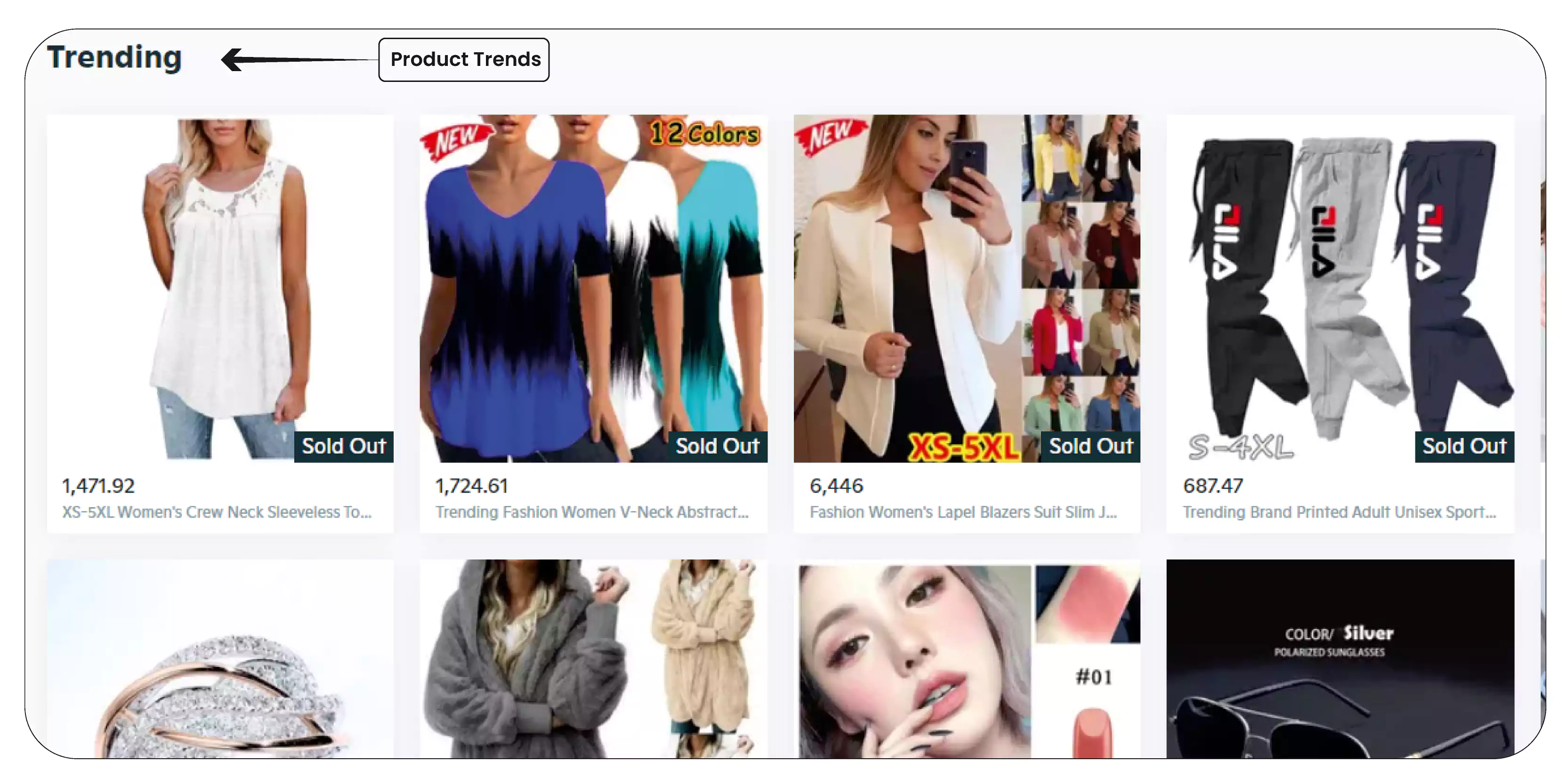
- Price Monitoring: Wish data scraping services allow businesses to track price changes over time, providing valuable insights into market dynamics. This capability enables companies to adapt their pricing strategies based on observed fluctuations and emerging trends, ensuring they remain competitive in a rapidly changing marketplace.
- Product Trends: Businesses can identify emerging trends and consumer preferences by examining the popularity of products and categories on Wish. This data is crucial for adjusting inventory and refining marketing strategies to align with current market demands, thus staying relevant and appealing to target audiences.
Competitive Analysis
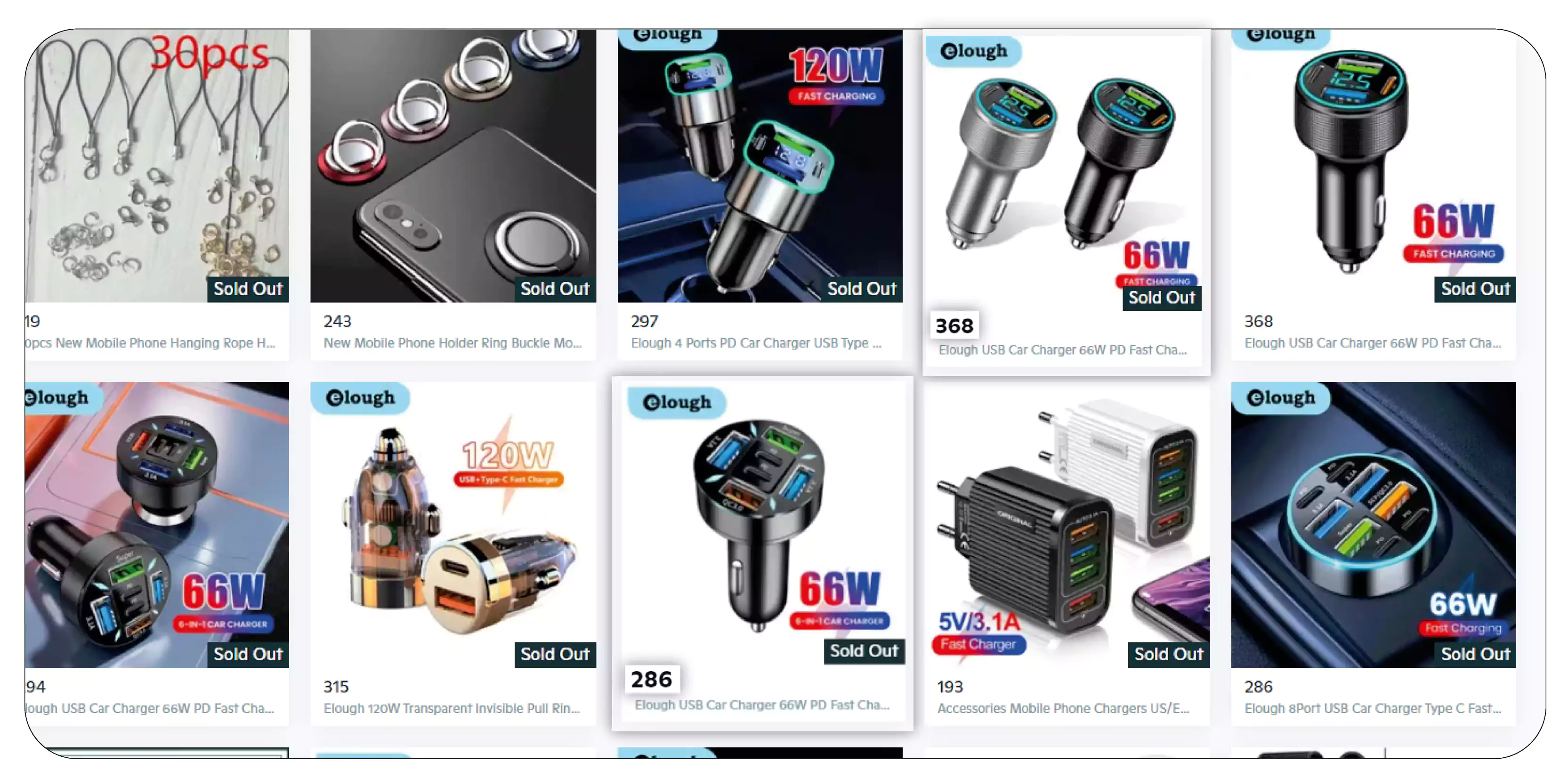
- Competitor Pricing: Monitoring the pricing of similar products on Wish using an e-commerce data scraper offers businesses a clear view of their competitive positioning. This information allows companies to adjust their pricing strategies to stay competitive and effectively attract and retain customers in the face of market competition.
- Product Assortment: Understanding the range and types of products offered by competitors on Wish helps identify gaps in one's product lineup. This knowledge is instrumental in developing strategies to fill these gaps and enhance product offerings, ensuring a more comprehensive and attractive catalog.
Inventory Management
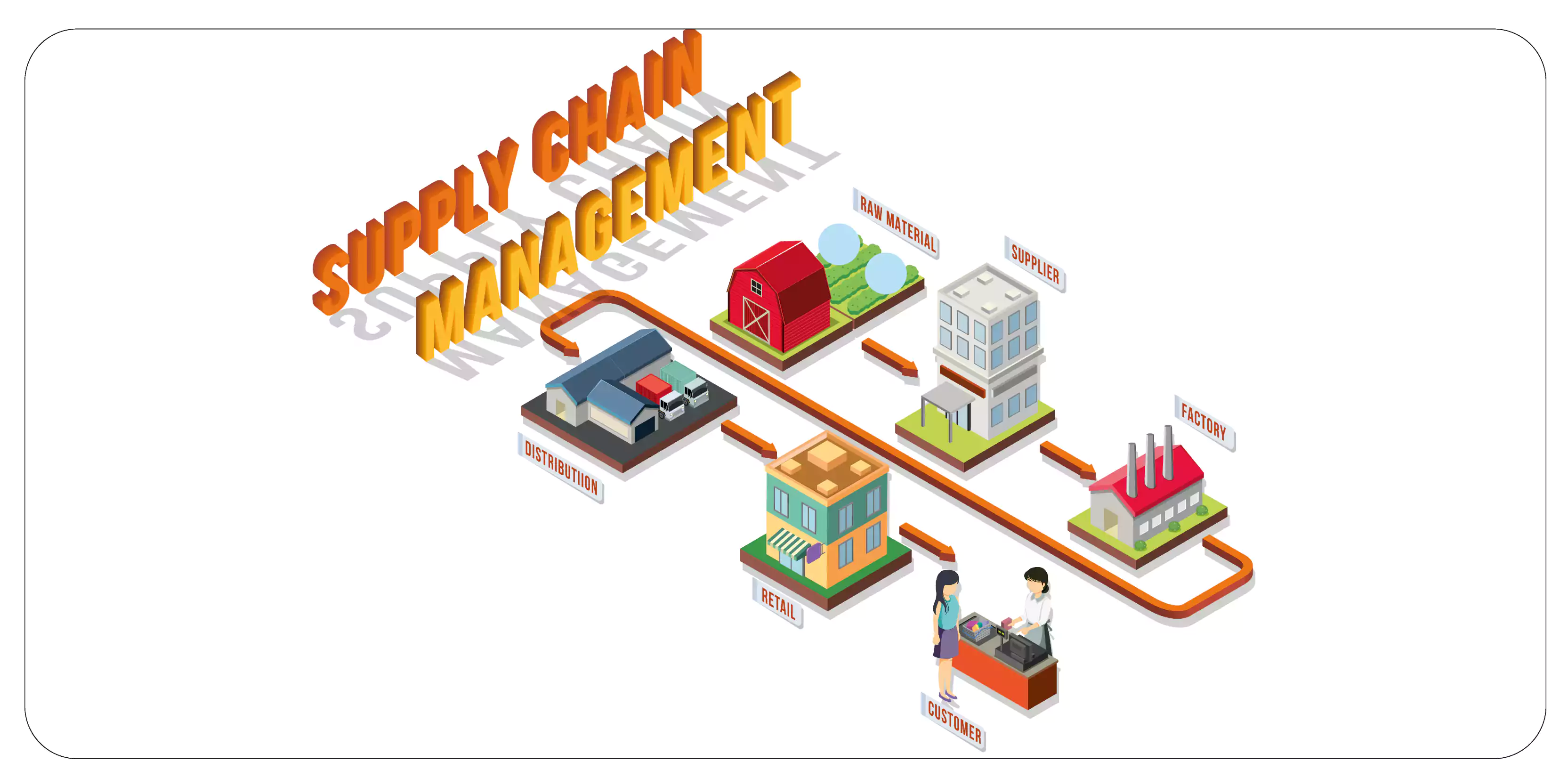
- Stock Levels: Tracking stock availability on Wish reveals which products are in high demand and which are less popular. This insight supports informed decisions about inventory management, helping businesses optimize stock levels and ensure that popular items are adequately restocked to meet consumer needs.
- Supply Chain Optimization: Data on product availability and lead times from Wish can enhance supply chain operations. By understanding which products are frequently stocked and their lead times, businesses can streamline their supply chains to ensure consistent availability of high-demand items and minimize disruptions.
Consumer Insights
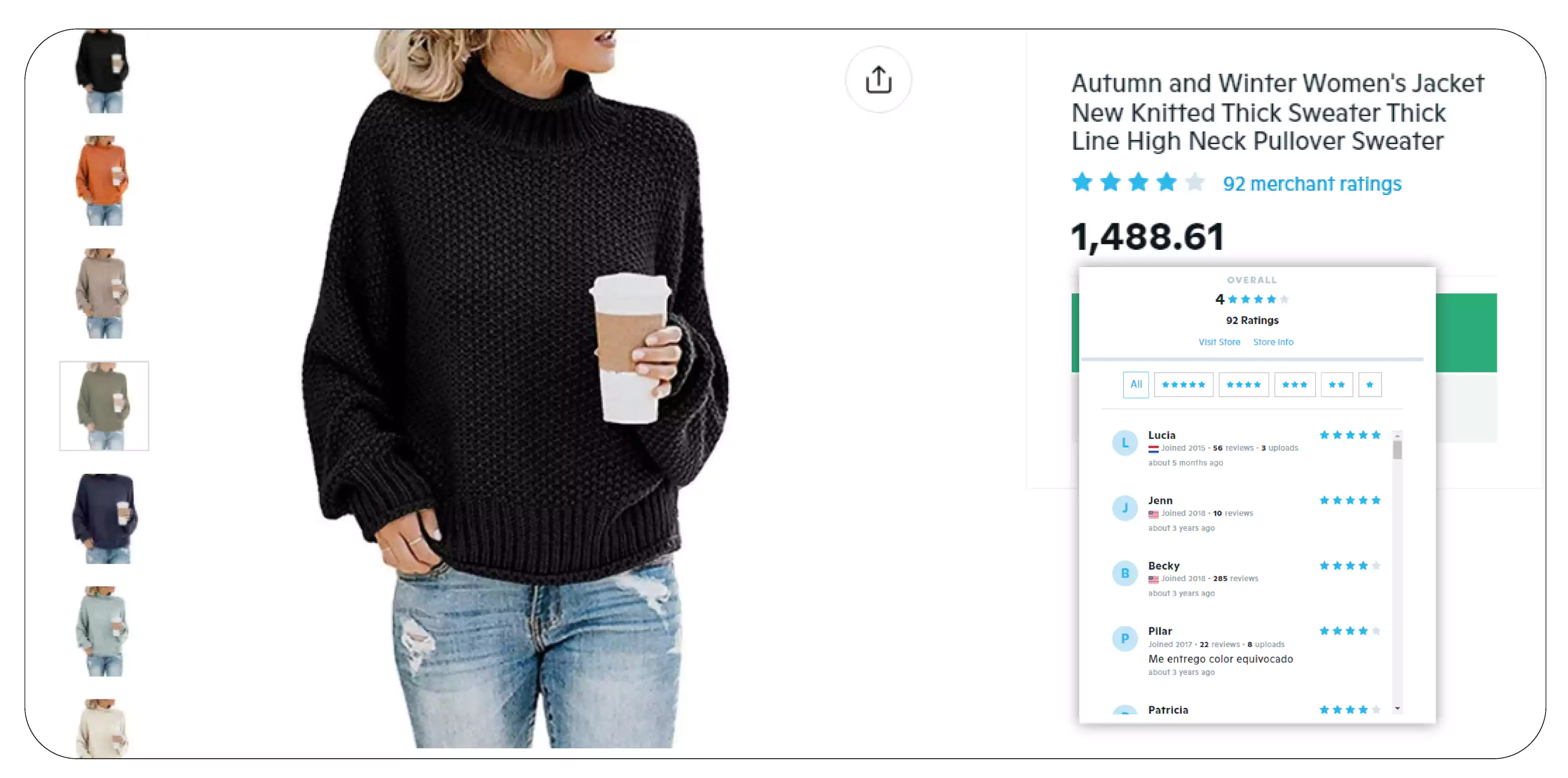
- Customer Reviews: Scraping customer reviews from Wish provides valuable feedback on product quality, features, and overall satisfaction. Analyzing this feedback helps businesses make informed improvements to their products and address any issues raised by customers, thereby enhancing product offerings and customer satisfaction.
- Buying Patterns: Analyzing purchasing data from Wish reveals consumer buying patterns, which are essential for crafting targeted marketing and promotional strategies. Understanding these patterns allows businesses to tailor their campaigns and offers better to meet the preferences and behaviors of their target audience.
Pricing Strategy

- Dynamic Pricing: Access to real-time product price data from Wish enables businesses to implement dynamic pricing strategies. By adjusting prices based on current market conditions, competitor pricing, and demand fluctuations, companies can optimize their pricing models to maximize profitability and competitiveness.
- Promotional Planning: E-commerce data scraping services provide insights into sales and discounts that help businesses plan effective promotional campaigns. Understanding the timing and nature of promotions can guide the development of strategic discounts and offers, enhancing the effectiveness of marketing efforts and boosting sales.
Product Development
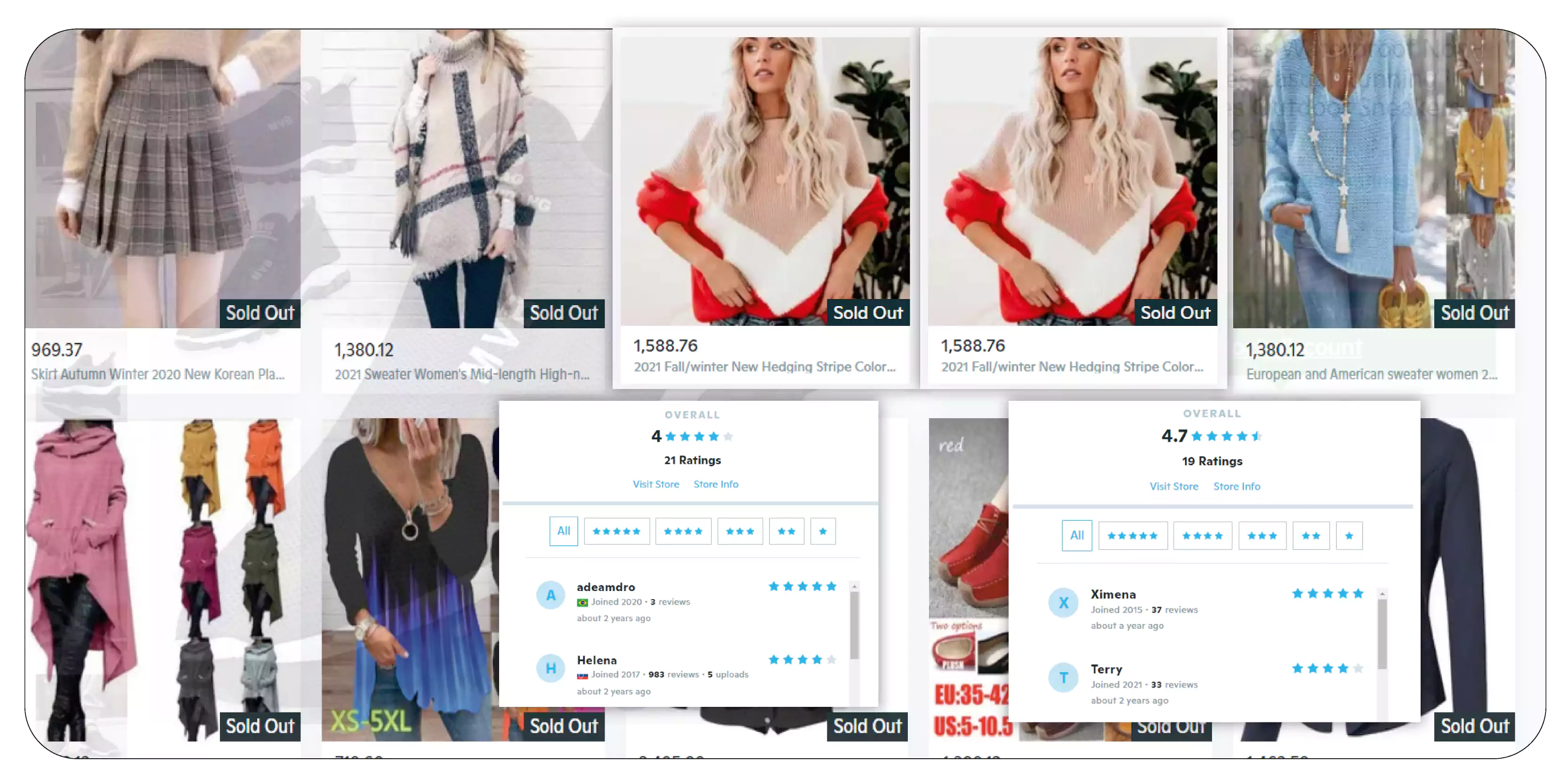
- Feature Comparison: Scraping e-commerce product data allows businesses to compare features and specifications across similar products on Wish. This comparison informs product development and innovation, enabling companies to create offerings that stand out in the market by addressing gaps and exceeding customer expectations.
- Consumer Preferences: By analyzing Wish dataset on what features and attributes consumers value, businesses can design products that more effectively meet market demands. This understanding helps develop products that align with consumer preferences and drive higher satisfaction levels.
Sales Strategy
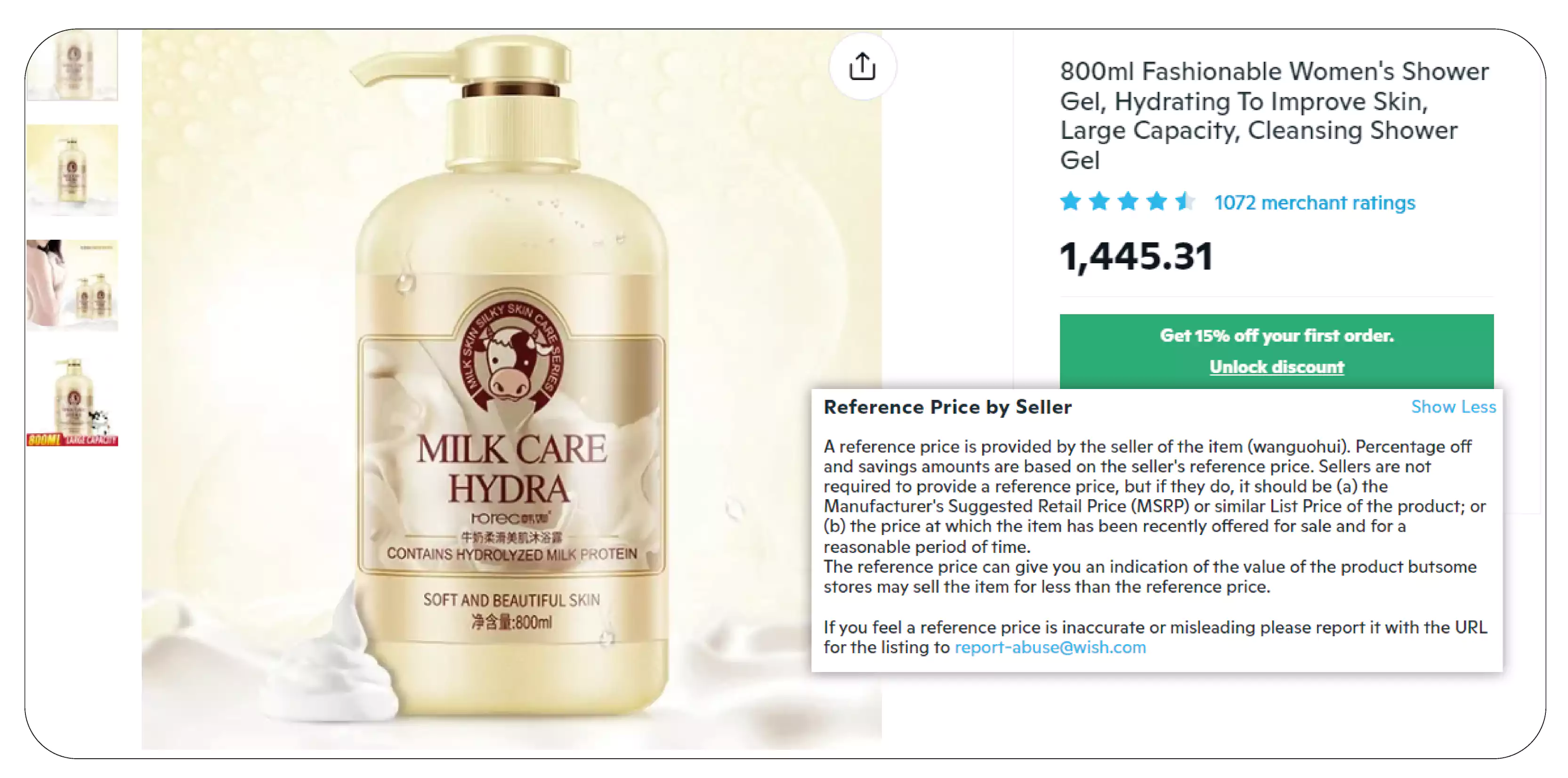
- Market Segmentation: Wish.com data extraction can assist in segmenting the market based on product preferences and buying behavior. This segmentation enables businesses to develop more targeted sales strategies, focusing on specific consumer groups and improving the efficiency of sales efforts.
- Sales Forecasting: Historical product performance and trend data from Wish support accurate sales forecasting. By analyzing past trends, businesses can predict future sales patterns and plan inventory and marketing strategies accordingly, enhancing overall sales effectiveness and operational efficiency.
Fraud Detection
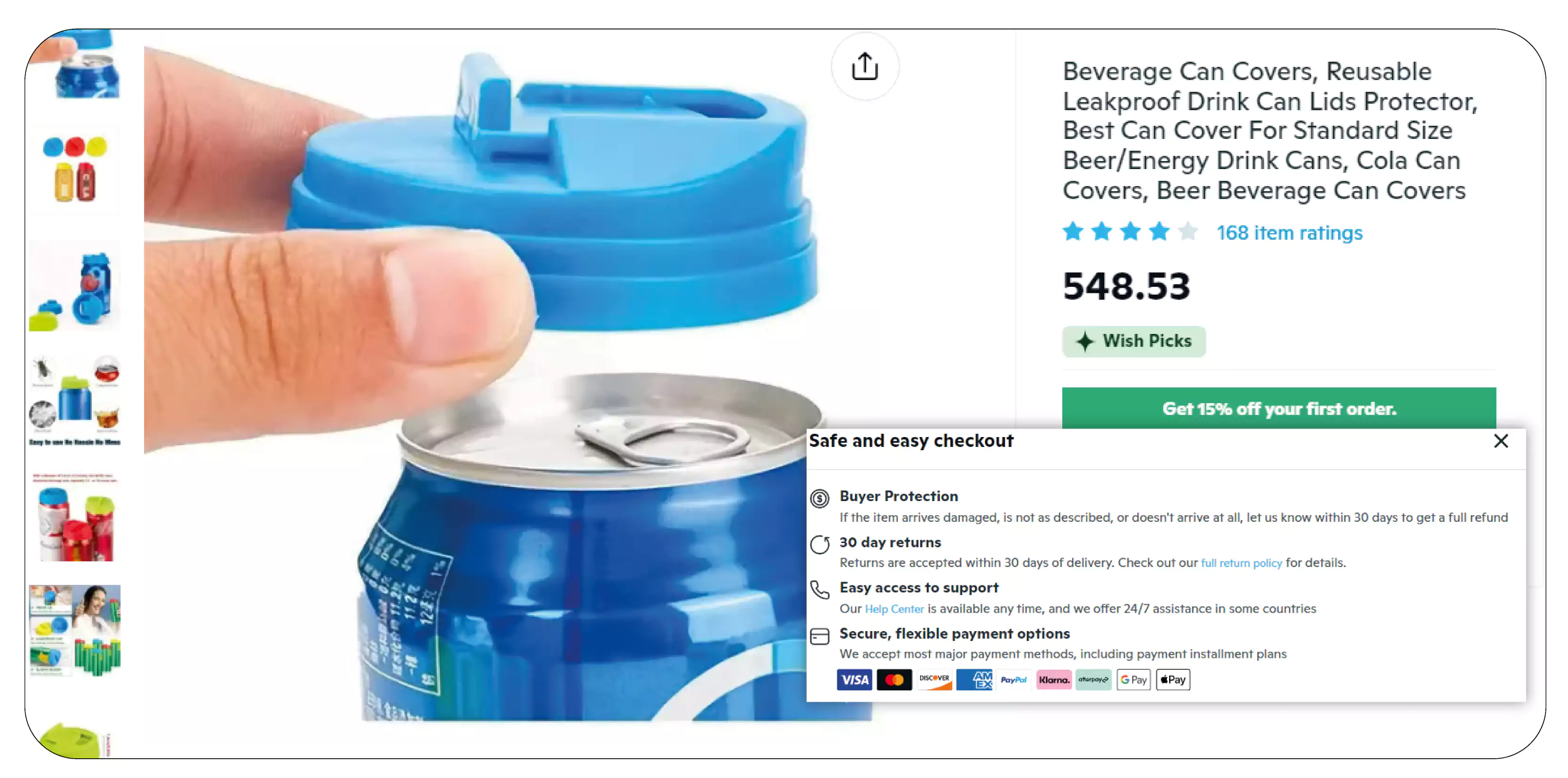
- Authenticity Verification: Regular scraping of product data from Wish helps identify counterfeit or fraudulent listings by comparing product information across various sources. This proactive approach to fraud detection ensures that businesses maintain the integrity of their product offerings and protect consumers from misleading or counterfeit products.
Different Categories on Wish.com
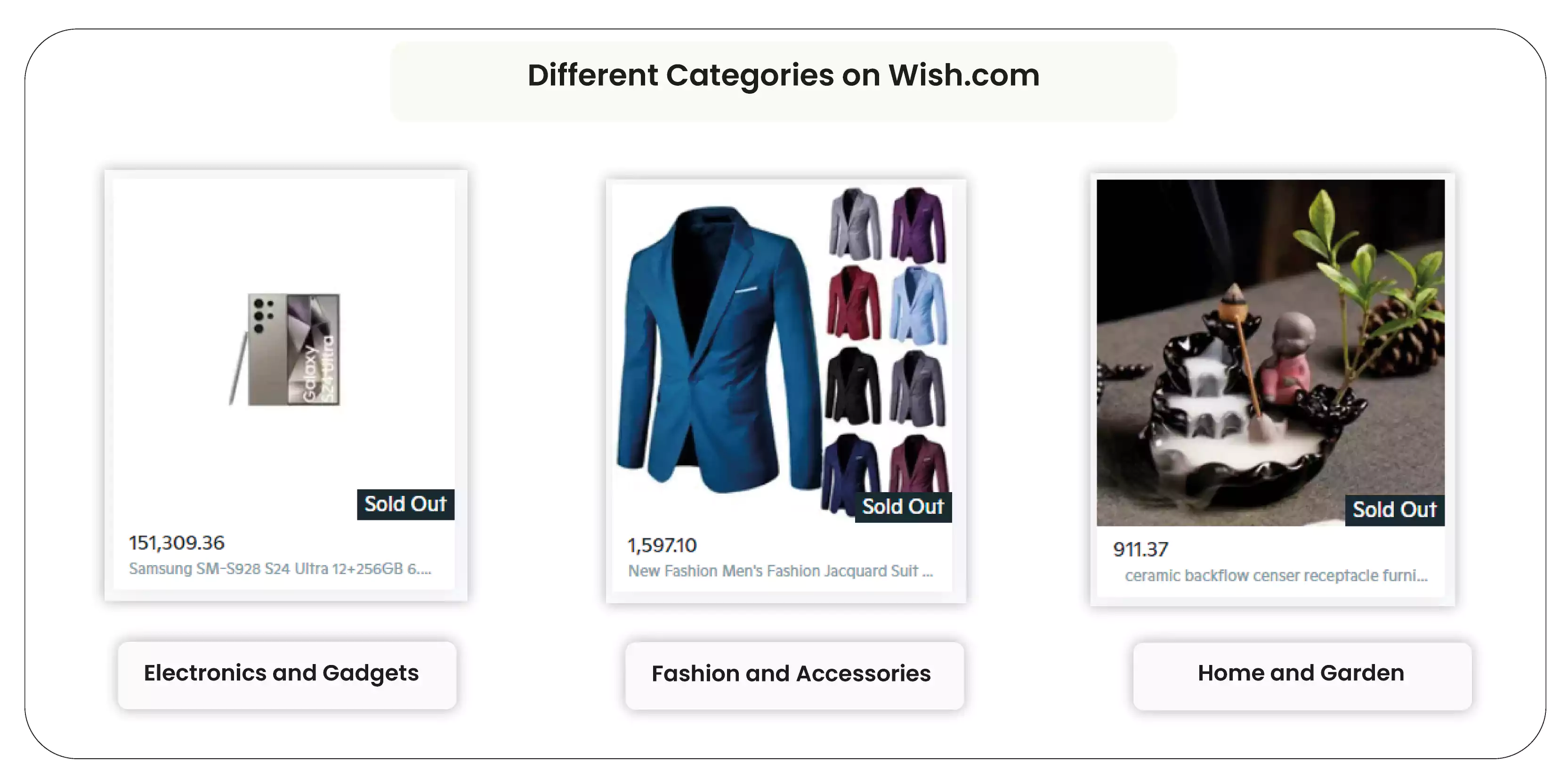
Wish.com offers a diverse range of product categories, including electronics and gadgets, fashion and accessories, and home and garden items. By scraping data from these categories, businesses can gain valuable insights into market trends and consumer preferences.
1. Electronics and Gadgets
Wish.com offers a wide range of electronics and gadgets, including smartphones, tablets, headphones, smartwatches, and various accessories. Scraping electronics and gadgets product data from Wish.com can provide valuable insights into popular products, pricing trends, and consumer preferences. This category is popular for its affordable prices and diverse product options, catering to tech enthusiasts and everyday users alike.
2. Fashion and Accessories
The fashion category on Wish.com includes clothing for men, women, and children, as well as a variety of accessories such as jewelry, watches, bags, and shoes. Scraping fashion data from Wish.com allows businesses to track emerging trends, analyze customer reviews, and optimize their inventory based on popular items. Users can find trendy styles and unique pieces at competitive prices, making it a go-to destination for fashion-forward shoppers.
3. Home and Garden
Wish.com features an extensive selection of home and garden products, including furniture, décor, kitchenware, gardening tools, and outdoor equipment. Scraping home and garden data from Wish.com helps companies understand market demand, compare prices, and enhance their product offerings to better meet customer needs. This category helps customers enhance their living spaces with affordable and innovative solutions, offering items that suit various tastes and needs.
Who Can Benefit the Most from Wish.com Data Scraping?
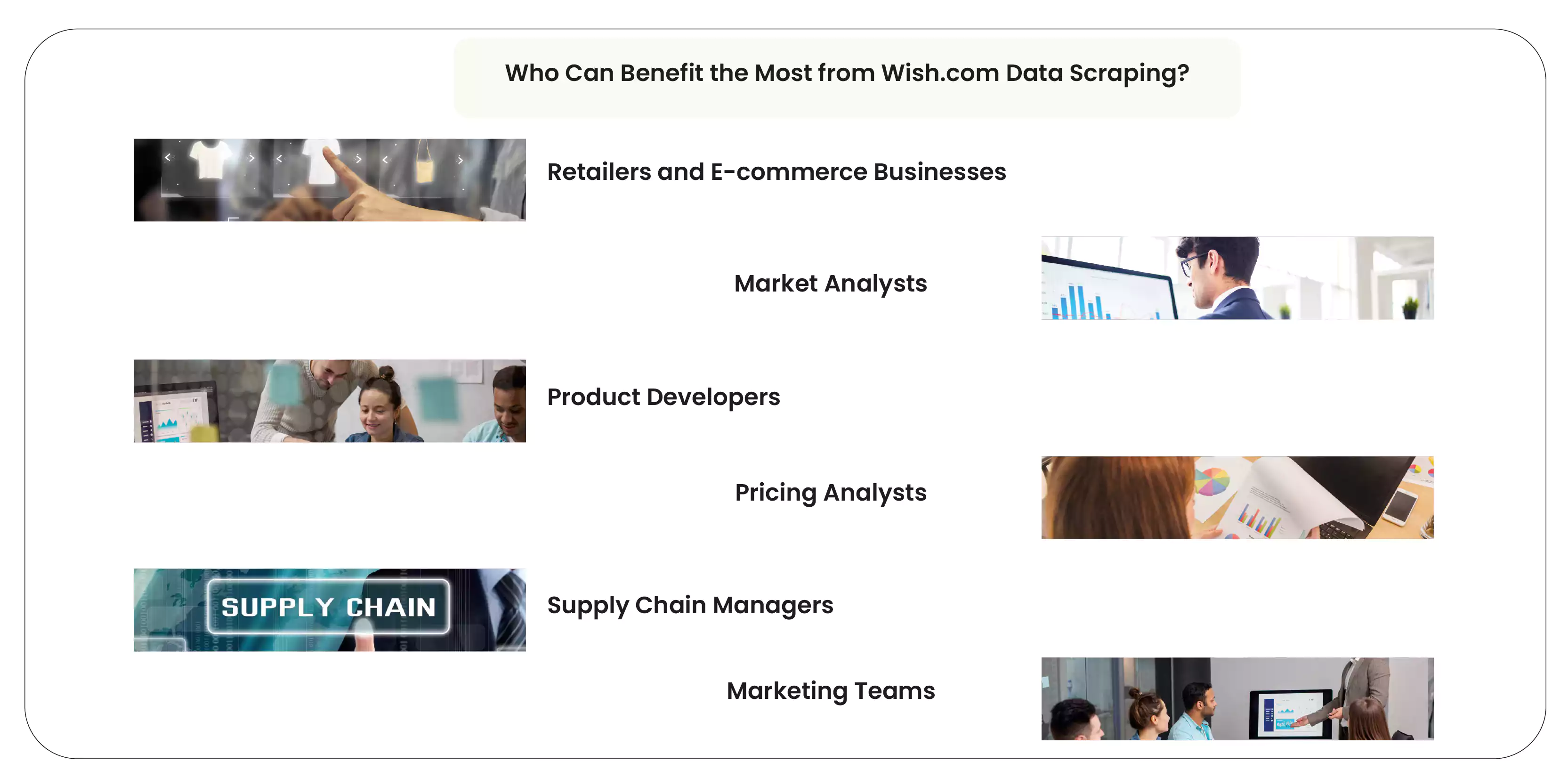
Wish.com data scraping provides valuable insights for various stakeholders. Retailers, market analysts, product developers, pricing analysts, supply chain managers, and marketing teams can leverage this data to optimize strategies, enhance decision-making, and stay competitive in the dynamic e-commerce landscape.
Retailers and E-commerce Businesses: Retailers and online businesses can significantly benefit from scraping Wish.com data by gaining valuable insights into market trends, competitor pricing, and product popularity. This information enables them to optimize their inventory levels, adjust pricing strategies in real time, and enhance their product offerings to meet customer demands better.
Market Analysts: For market analysts, Wish.com data provides a comprehensive view of current trends and consumer behavior. This data is essential for conducting in-depth market research, identifying emerging trends, and forecasting future market conditions, ultimately supporting informed business decisions and strategic planning.
Product Developers: Product developers can use Wish.com data to gather detailed information about existing products, including features, specifications, and customer feedback. This information is crucial for refining existing products and designing new ones that align with market needs and consumer preferences, thereby driving innovation and product differentiation.
Pricing Analysts: Pricing analysts benefit from the ability to track price fluctuations and promotional strategies on Wish.com. This data helps them develop dynamic pricing models, adjust prices based on market conditions and competitor actions, and implement effective pricing strategies to maximize profitability and remain competitive.
Supply Chain Managers: Supply chain managers can leverage data from Wish.com to monitor product stock levels and lead times. This insight is valuable for optimizing supply chain operations, ensuring that high-demand products are consistently available, and improving inventory management to prevent stockouts and overstock situations.
Marketing Teams: Marketing teams can analyze customer reviews, buying patterns, and product popularity data from Wish.com to design targeted marketing campaigns. By understanding consumer preferences and feedback, they can craft personalized promotions, optimize advertising strategies, and enhance overall marketing effectiveness to engage better and convert their audience.
Conclusion: Scraping data from Wish.com offers numerous advantages for businesses across various sectors. Retailers can refine their inventory and pricing strategies, market analysts gain critical insights into market trends, and product developers can innovate based on detailed product information. Pricing analysts can implement dynamic pricing models while supply chain managers optimize their operations. Marketing teams benefit from targeted campaigns based on consumer behavior. Overall, leveraging Wish.com data enables businesses to make informed decisions, stay ahead of competitors, and adapt to evolving market demands. By utilizing this data effectively, companies can enhance their strategic planning and drive sustained growth in the e-commerce arena.
At Product Data Scrape, ethical principles are central to our operations. Whether it's Competitor Price Monitoring Services or Mobile App Data Scraping, transparency and integrity define our approach. With offices spanning multiple locations, we offer customized solutions, striving to surpass client expectations and foster success in data analytics.































.webp)






